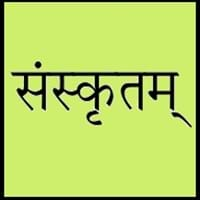Countries
India
Barbados, Belize, Botswana, Cameroon, Canada, Dominica, Fiji, Ghana, India, Ireland, Jamaica, Kenya, Malta, Mauritius, Micronesia, Nigeria, Pakistan, Philippines, Rwanda, Saint Kitts and Nevis, Samoa, Sierra Leone, Singapore, Somaliland, South Africa, South Sudan, Sudan, Tanzania, Trinidad and Tobago, Uganda, United Kingdom, Zambia, Zimbabwe
National Language
India
Anguilla, Antigua and Barbuda, Bahamas, Barbados, Belize, Bermuda, Cayman Islands, Gibraltar, Grenada, Guam, Guyana, Jersey, Montserrat, Nauru, Singapore, Trinidad and Tobago, United Kingdom, United States of America
Second Language
Not spoken in any of the countries
India, Nigeria, Pakistan, Singapore
Speaking Continents
Asia
Africa, Asia, Australia, Europe, North America, Oceania, South America
Minority Language
Not spoken in any of the countries
South Africa
Regulated By
Not Available
Not Available
Interesting Facts
- Sanskrit language has highest number of vocabularies than any other language.
- Sanskrit Language has proved to help in speech therapy, also it increases concentration and helps to learn maths and science better.
- Most of the English words begin with the letter S than any other letter.
- English is third most commonly spoken language in the world.
Similar To
Old German Language
Not Available
Derived From
Prakrit Language
Latin
Alphabets in
Sanskrit-Alphabets.jpg#200
English-Alphabets.jpg#200
Writing Direction
Left-To-Right, Horizontal
Left-To-Right, Horizontal
Hello
नमस्कारः (namaskāraḥ)
Hello
Thank You
धन्यवादाः (dhanyawādāh)
Thank you
How Are You?
कथमस्ति भवान् (kathamasti bhawān)
How are you?
Good Night
शुभरात्री (shubharātrī)
Good Night
Good Evening
शुभः सायंकालः
Good Evening
Good Afternoon
शुभ दुपार
Good Afternoon
Good Morning
सुप्रभातम् (suprabhātam)
Good Morning
Please
कृपया (kripayā)
Please
Sorry
कृपया क्षम्यताम् (kripayā kshamyatām)
Sorry
Bye
पुनः मिलामः(punah milamah)
Bye
I Love You
त्वामनुरजामि (twāmanurajāmi)
I love you
Excuse Me
कृपया क्षम्यताम् (kripayā kshamyatām)
Excuse Me
Dialect 1
Not present
American English
Where They Speak
Not Available
United States of America
How Many People Speak
Not Available
Dialect 2
Not present
Hiberno-English
Where They Speak
Not Available
Republic of Ireland, United Kingdom
How Many People Speak
Not Available
Dialect 3
Not present
Welsh English
Where They Speak
Not Available
United Kingdom
How Many People Speak
Not Available
Speaking Population
Not Available
Second Language Speakers
Not Available
Native Name
संस्कृतम् (saṃskṛtam)
English
Alternative Names
Not Available
Not Available
French Name
sanskrit
anglais
German Name
Sanskrit
Englisch
Pronunciation
[səmskr̩t̪əm]
/ˈɪŋɡlɪʃ/
Ethnicity
Not Available
Not Available
Origin
2000 B.C.
5th Century AD
Language Family
Indo-European Family
Indo-European Family
Subgroup
Indo-Iranian
Not Available
Branch
Indic
Not Available
Early Forms
Vedic Sanskrit
Old English, Middle English, Early Modern English and English
Standard Forms
Sanskrit
Standard English
Language Position
Not Available
Signed Forms
Not Available
Signed English
Scope
Individual
Individual
ISO 639 6
Not Available
engs
Glottocode
sans1269
stan1293
Linguasphere
No data available
52-ABA
Language Type
Ancient
Living
Language Linguistic Typology
Subject-Object-Verb
Subject-Verb-Object
Language Morphological Typology
Synthetic
Analytic, Fusional, Isolating, Synthetic
Sanskrit and English Speaking population
Sanskrit and English speaking population is one of the factors based on which Sanskrit and English languages can be compared. The total count of Sanskrit and English Speaking population in percentage is also given. The percentage of people speaking Sanskrit language is Not Available whereas the percentage of people speaking English language is 5.43 %. When we compare the speaking population of any two languages we get to know which of two languages is more popular. Find more details about how many people speak Sanskrit and English on Sanskrit vs English where you will get native speakers, speaking population in percentage and native names.
Sanskrit and English Language Codes
Sanskrit and English language codes are used in those applications where using language names are tedious. Sanskrit and English Language Codes include all the international language codes, glottocodes and linguasphere.





